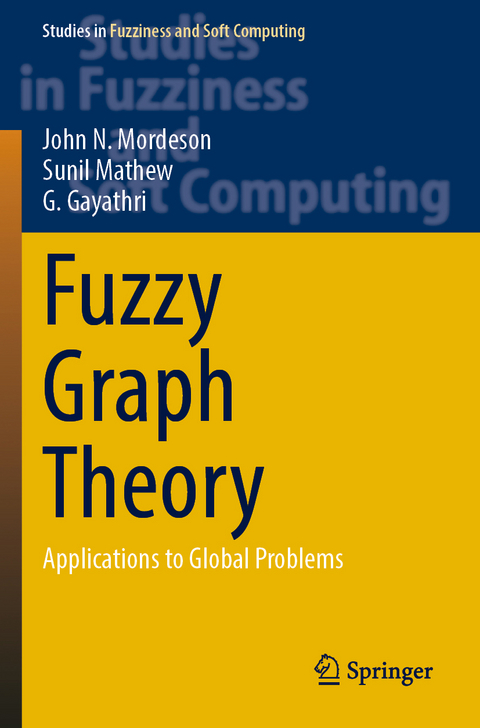
Fuzzy Graph Theory
Springer International Publishing (Verlag)
978-3-031-23110-0 (ISBN)
Dr. John N Mordeson is a professor emeritus of Mathematics at Creighton University. He received his B.S., M.S., and Ph.D. from Iowa State University. He is a member of Phi Kappa Phi. He has published 20 books and over 200 journal articles. He is on the editorial board of numerous journals. He has served as an external examiner of Ph.D. candidates from India, South Africa, Bulgaria, and Pakistan. He has refereed for numerous journals and granting agencies. He is particularly interested in applying mathematics of uncertainty to combat the problem of human trafficking.
Dr. Sunil Mathew is a faculty member in the Department of Mathematics, NIT Calicut, India. He has acquired his masters from St. Joseph's College Devagiri, Calicut, and Ph.D. from National Institute of Technology Calicut in the area of fuzzy graph theory. He has published more than 120 research papers and written 10 books. He is a member of several academic bodies and associations. He is an editor and reviewer of several international journals. He has an experience of 20 years in teaching and research. His current research topics include fuzzy graph theory, bio-computational modeling, graph theory, fractal geometry, and chaos.
Ms. Gayathri G is currently pursuing research in the Department of Mathematics, National Institute of Technology Calicut, India. She took her master's degree in Mathematics from Government College Kasaragod, Kasaragod. She has got several publications in prestigious journals.
Preliminaries.- Nonstandard Analysis.- Social Networks and Climate Change.- Climate Change and Consequences.- Fuzzy Soft Semigraphs and Graph Structures.- Directed Fuzzy Incidence Graphs.- Max- ow Min-cut Theorem for Directed Fuzzy Incidence Networks.- Cycle Connectivity of Fuzzy Graphs with Applications.- Neighborhood Connectivity in Fuzzy Graphs.- Cyclic Connectivity Status and Integrity Index of Fuzzy Graphs.
| Erscheinungsdatum | 06.03.2024 |
|---|---|
| Reihe/Serie | Studies in Fuzziness and Soft Computing |
| Zusatzinfo | XVII, 254 p. 76 illus. |
| Verlagsort | Cham |
| Sprache | englisch |
| Maße | 155 x 235 mm |
| Themenwelt | Informatik ► Theorie / Studium ► Künstliche Intelligenz / Robotik |
| Technik | |
| Schlagworte | climate change • Fuzzy Graph Theory • Fuzzy incidence graphs • Operations of Fuzzy Graphs • Positive feedback loops |
| ISBN-10 | 3-031-23110-4 / 3031231104 |
| ISBN-13 | 978-3-031-23110-0 / 9783031231100 |
| Zustand | Neuware |
| Haben Sie eine Frage zum Produkt? |
aus dem Bereich


